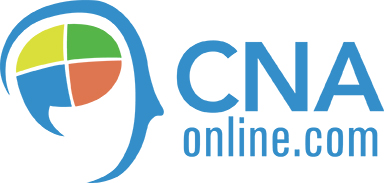 Labor shortages are set to remain a thorn in the long term care (LTC) industry's side for several years to come. According to data released earlier this year by the American Health Care Association and National Center for Assisted Living (AHCA/NCAL), nursing homes will not reach their pre-pandemic employment levels until 2027, posing a dire threat to providers and residents alike. While the crisis is a multifaceted problem that requires a multifaceted solution, one response may lie in online nurse assistant training programs like CNAonline.
Labor shortages are set to remain a thorn in the long term care (LTC) industry's side for several years to come. According to data released earlier this year by the American Health Care Association and National Center for Assisted Living (AHCA/NCAL), nursing homes will not reach their pre-pandemic employment levels until 2027, posing a dire threat to providers and residents alike. While the crisis is a multifaceted problem that requires a multifaceted solution, one response may lie in online nurse assistant training programs like CNAonline.
Developed by education solutions provider Academic Platforms in partnership with AHCA, CNAonline is an online nurse assistant training program that blends virtual study with an in-person clinical skills practicum. It adapts AHCA's “How to be a Nurse Assistant" curriculum into a cloud-based training program—complete with e-book, online lectures, and video modules—that empowers students to pursue a nursing career on their own terms.
At the same time, the limited in-person lab element opens up teaching opportunities to nurses who might not otherwise be able to fit them into their busy schedules.
Like other training programs, CNAonline does not certify students themselves. Rather, it prepares them for certified nurse assistant (CNA) exams in their own states. The patchwork nature of individual state regulations for CNA training may pose bureaucratic hurdles for health care organizations interested in it, but those who've used the program are unequivocal: it has the power to dramatically expand the caretaker pipeline.
The Hybrid Method Is Wonderful
LTC operator Genesis Healthcare started using CNAonline in 2019, initially rolling out the program in West Virginia after the state's regulatory body approved its curriculum. In the years since, Genesis Healthcare has expanded the program to Colorado, Massachusetts, Tennessee, Vermont, and Virginia, with plans to bring it to New Hampshire and Rhode Island. More than 500 CNAs have graduated from the program so far.
As a result, Genesis has made nursing careers available to workers left behind by conventional training paradigms. “The hybrid method is wonderful for those that are working a second job, or have small children, because they can carve out the time needed based on their convenience," said Amanda Scott, administrator at Brightwood Center, a Genesis facility in West Virginia.
It's also suitable for those geographically underserved by in-person training. “In rural communities, this mode of training is appreciated since it may be difficult for students to attend traditional classes," added Deborah Rowe, Genesis's vice president of nursing workforce development.
Rowe stressed that everyone learns in their own way, which is why Genesis continues to offer traditional nurse training as well. The value of online programs lies in their potential to complement these approaches, naturally selecting for highly driven candidates. "This platform attracts students that enjoy the challenge of learning and are self-motivated with the self-discipline to budget their time for completing their online assignments," she said.
When Genesis sought feedback from the participants in its original CNAonline launch pilot, the responses spoke to the untapped demographics this program can reach. “One of the students was a mother of two small children," Rowe recalled. “She responded that CNAonline offered her the opportunity to do classwork after her children went to bed at night. Life events had interfered with her desire to further educate herself. With the independence this program offered, she was able to secure her role as a CNA and pursue a career in nursing."
Crucially, the program gives increased flexibility to instructors as well, allowing them to earn supplementary income by maintaining their preferred work schedules while fielding CNAonline's in-person components. “The hybrid, CNAonline program allows instructors to work full-time, part-time, or per-diem since the labs and clinical hours are structured and the classroom is online for the students," Rowe explained. “This affords the nurses the ability to work in other positions and only have to be available for the one day a week lab practice and the required clinical hours required by the regulatory body."
It Opens the Door
When CNAonline launched in 2016, it was ahead of its time. “A lot of states just would not allow online learning," nurse educator Julie Gdowski, author of the 8th edition of the AHCA's “How to be a Nurse Assistant" and curriculum development lead at Academic Platforms. It wasn't until the COVID-19 pandemic created a new market for remote learning platforms that many of these states changed gears. "As states are getting on board, we're seeing more and more that were originally like, 'No, we do not do online learning,' but now have adapted to that," she said.
That doesn't mean the program's implementation has been frictionless. Every state has its own regulatory framework for nurse training, with some more onerous than others. For organizations who wish to use the program, the licensing process requires a multi-step approach, in collaboration with the CNAonline team, tailored to their state's needs. "Meeting those additional requirements per state is challenging—trying to find each state's nuances and know what their requirements are," Gdowski said. For instance, providers need to receive approval for each facility they wish to use for the program's onsite components.
Attention to detail is key, as a single forgotten piece of paperwork can result in an application's denial. CNAonline works to make this process easier for prospective affiliates by creating application templates for each state, presenting to regulators when requested, and responding to their feedback in the development of each program. In Gdowski's view, the complexity of this patchwork points to the importance of legislative fixes to the workforce crisis: looser state-level eligibility requirements for onsite nurse educators, for instance, and an increase in state-approved testing vendors.
“States decide who is going to be their testing vendor," she said. "There needs to be some policies on that as well that, maybe opening them up to more than just one testing vendor to get these students through to where they can test and work on the floor."
 Asked what feedback she's received about the program, Gdowski echoed Rowe and Scott, pointing to its potential to solve providers' labor shortages. Not only does the program allow educators to spend more time on the floor, it helps knock down the nursing field's barriers to entry. "We have facilities that'll tell us that the online course allows us to broaden their workforce," Gdowski said. "It reaches students that typically would not be able to take the class—maybe single parents, people that are working full-time that are trying to get into the workforce in nursing. It opens the door for a lot of people that it didn't before."
Asked what feedback she's received about the program, Gdowski echoed Rowe and Scott, pointing to its potential to solve providers' labor shortages. Not only does the program allow educators to spend more time on the floor, it helps knock down the nursing field's barriers to entry. "We have facilities that'll tell us that the online course allows us to broaden their workforce," Gdowski said. "It reaches students that typically would not be able to take the class—maybe single parents, people that are working full-time that are trying to get into the workforce in nursing. It opens the door for a lot of people that it didn't before."
Steve Manning is a journalist based in New York City.